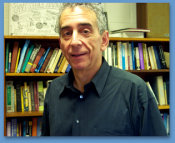 Dr. Laura A. King is a highly-esteemed teacher, researcher and writer in the fields of Positive Psychology, Social Psychology and Development of Character, and has an enduring interest in the topic of what makes life good. She is currently a professor at the University of Missouri, and started her career at Southern Methodist University, where she won six different teaching awards, including the “M” award for “sustained excellence.” Dr. King won Positive Psychology’s highest award in 2001 when she was presented with the Templeton Prize. She has done extraordinary and fascinating research in the area of goals, happiness, life stories, regrets and meaning, and has also had her research funded by the National Institutes for Mental Health.
Dr. Laura A. King is a highly-esteemed teacher, researcher and writer in the fields of Positive Psychology, Social Psychology and Development of Character, and has an enduring interest in the topic of what makes life good. She is currently a professor at the University of Missouri, and started her career at Southern Methodist University, where she won six different teaching awards, including the “M” award for “sustained excellence.” Dr. King won Positive Psychology’s highest award in 2001 when she was presented with the Templeton Prize. She has done extraordinary and fascinating research in the area of goals, happiness, life stories, regrets and meaning, and has also had her research funded by the National Institutes for Mental Health.
In our fast-moving podcast interview, we jump right in with questions about how life goals and “life lists” contribute to a person’s well-being, and how writing about one’s “peak” experiences just once seems to have a lasting impact on their well-being. Dr. King has authored new and exciting research on the role of regrets and how one can learn from “lost possible selves” as well as the well-known “best possible self” exercises (available here), which is helpful in understanding how to disengage from goals that are no longer viable. Anyone who wants to know why goals matter needs to listen carefully to this interview and take copious notes!
To learn more about Dr. King and see a website listing some of her published papers, click here.
 Tom Rath is the author of ‘Vital Friends: The People You Can’t Afford to Live Without’ and ‘StrengthsFinder 2.0,’ as well as the co-author of “How Full is Your Bucket?’, which have all been published by Gallup Press, where Tom is the head of Gallup’s workplace research and leadership consulting worldwide. Tom graduated from the University of Michigan and holds the Masters in Applied Positive Psychology degree from the University of Pennsylvania.
Tom Rath is the author of ‘Vital Friends: The People You Can’t Afford to Live Without’ and ‘StrengthsFinder 2.0,’ as well as the co-author of “How Full is Your Bucket?’, which have all been published by Gallup Press, where Tom is the head of Gallup’s workplace research and leadership consulting worldwide. Tom graduated from the University of Michigan and holds the Masters in Applied Positive Psychology degree from the University of Pennsylvania.
In our interview, Tom talks about why having a best friend at work can dramatically improve workplace engagement, how ‘vital’ friends differ from normal friends, why Gallup decided to offer a new book on interpreting the Clifton StrengthsFinder test, and why your test results might shift slightly from year to year. At the end of the interview, Tom even discloses what his top strength is, and how he uses it effectively to research and write such excellent best-sellers.
To learn more about “Vital Friends” and how to use the website designed exclusively for use with this book, go to: www.vitalfriends.com. Information about “StrengthsFinder 2.0” can be found at: www.strengthsfinder.com.
 Barry Schwartz is the Dorwin Cartwright Professor of Social Theory and Social Action at Swarthmore College, and the author of the well-received ‘Paradox of Choice,” which explores how less is truly more in life, and how “maximizers” face a more depressing life than “satisficers.” In our podcast interview, Barry explains his theories in easy-to-understand language, and makes a compelling case for reducing our number of choices in life while finding ways to savor our decisions and make them work for us.
Barry Schwartz is the Dorwin Cartwright Professor of Social Theory and Social Action at Swarthmore College, and the author of the well-received ‘Paradox of Choice,” which explores how less is truly more in life, and how “maximizers” face a more depressing life than “satisficers.” In our podcast interview, Barry explains his theories in easy-to-understand language, and makes a compelling case for reducing our number of choices in life while finding ways to savor our decisions and make them work for us.
Towards the end of the interview, Barry also discusses why it’s best to take a break from making major decisions after absorbing information, and also why colleges would be better adopting a “good enough” policy in the admissions process to create a happier, healthier set of high school and college students. To learn more about Barry’s work, his research, and what he’s doing, go to: http://www.swarthmore.edu/SocSci/bschwar1/
 Dr. Jessica Tracy is Assistant Professor of Psychology at the University of British Columbia, where her research focuses on the expression, psychological structure, and cognitive elicitors of self-conscious emotions, as well a their links to personality and self-esteem regulation. She is the co-editor of “The Self-Conscious Emotions: Theory and Research,” and her work has been published in many personality journals. Her research has also been funded by the National Institute of Mental Health and the Social Sciences and Health Research Council of Canada.
Dr. Jessica Tracy is Assistant Professor of Psychology at the University of British Columbia, where her research focuses on the expression, psychological structure, and cognitive elicitors of self-conscious emotions, as well a their links to personality and self-esteem regulation. She is the co-editor of “The Self-Conscious Emotions: Theory and Research,” and her work has been published in many personality journals. Her research has also been funded by the National Institute of Mental Health and the Social Sciences and Health Research Council of Canada.
In this interview with me on July 26, 2007, Dr. Tracy talks about the differences between “authentic pride” and “hubristic pride,” and how they are linked with self-esteem and well-being. She reviews the reasons why genuine self-esteem is often rooted in the pride that comes from pursuing intrinsic goals that involve hard work, and why this creates more joy, greater productivity and better social relationships. At the end of our interview, Dr. Tracy speculates about how hubristic pride is often rooted in shame, and how this must be addressed for lasting recovery from addictive diseases like alcoholism, that are often rooted in shame.
I thoroughly enjoyed our sweeping discussion of narcissism, pride, happiness and self-esteem, and learned much from Dr. Tracy in this fifteen-minute interview. Please take a moment to listen to her cutting-edge thoughts on these subjects!
Dr. Tracy’s webpage is: http://ubc-emotionlab.ca/jltracy/.
 Karen Reivich, Ph.D., is co-director of the Penn Resiliency Project at the Positive Psychology Center and a research associate in the Department of Psychology at the University of Pennsylvania. Karen is also an instructor in the Masters of Applied Positive Psychology program in which she teaches a course on Positive Psychology and Coaching, where I was fortunate enough to have her as a memorable, brilliant teacher, who always found ways to inject humor into our subject. She is a leader in the field of depression prevention, resilience, positive psychology interventions and school-based intervention research. Karen also has a coaching practice and provides consultation to organizations around the themes of resilience, optimism, and strength development. Her book, “The Resilience Factor,” is must-reading for anyone who is interested in Positive Psychology, and it was co-authored with Dr. Andrew Shatte.
Karen Reivich, Ph.D., is co-director of the Penn Resiliency Project at the Positive Psychology Center and a research associate in the Department of Psychology at the University of Pennsylvania. Karen is also an instructor in the Masters of Applied Positive Psychology program in which she teaches a course on Positive Psychology and Coaching, where I was fortunate enough to have her as a memorable, brilliant teacher, who always found ways to inject humor into our subject. She is a leader in the field of depression prevention, resilience, positive psychology interventions and school-based intervention research. Karen also has a coaching practice and provides consultation to organizations around the themes of resilience, optimism, and strength development. Her book, “The Resilience Factor,” is must-reading for anyone who is interested in Positive Psychology, and it was co-authored with Dr. Andrew Shatte.
In this interview, Karen and I discuss why resilience is so important in a flourishing, positive life, how to develop it, and what new research is coming in the field of resilience and optimism.
Towards the end of the interview, Karen mentions her newest website: www.fishfulthinking.com, which she created in partnership with Pepperidge Farm to help develop resilient, optimistic children.